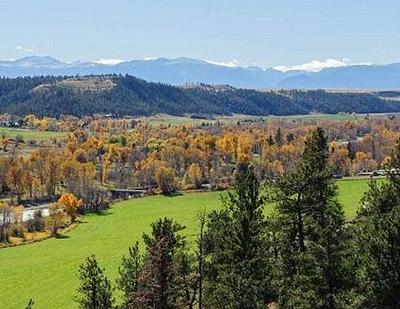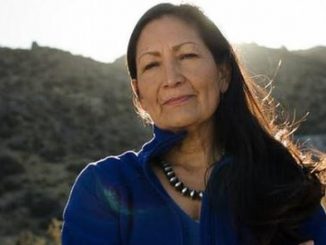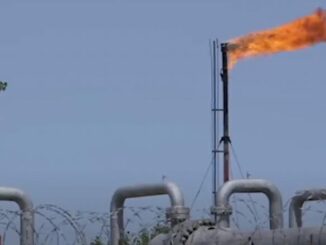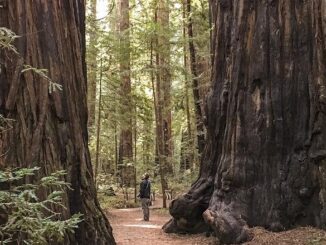
GREAT FALLS, Montana, May 5, 2020 (ENS) – Montana landowners, farmers, and conservation groups have won a victory in their effort to protect local groundwater and the climate. A federal judge has ruled that the Bureau of Land Management, BLM, failed to consider risks to Montana’s environment and water supply before issuing 287 oil and gas leases in the December 2017 and March 2018 lease sales.
The court’s May 1 decision reverses the Bureau of Land Management’s recent approval of oil and gas leases across vast swaths of Montana’s public lands.
BLM’s lease sale would have paved the way for fracking to spread onto 145,063 acres of Montana public lands. Rural landowners and conservation groups, including WildEarth Guardians and the Montana Environmental Information Center, joined forces to fight BLM’s lease sale because of the agency’s failure to take a hard look at the impacts of fracking on Montana’s water quality, water quantity, and the climate.
Earthjustice, a nonprofit public interest law firm, and the Western Environmental Law Center represented the parties in U.S. Federal District Court for the District of Montana.

Chief District Judge Brian Morris ruled that “The problems with BLM’s EAs [Environmental Assessments] largely relate to the absence of analysis rather than to a flawed analysis. In other words, the Court does not fault BLM for providing a faulty analysis of cumulative impacts or impacts to groundwater, it largely faults BLM for failing to provide any analysis.”
Judge Morris vacated BLM’s finding of “no significant impact” and its issuance of the leases and remanded the matter back to the BLM for “further analysis and action consistent with this opinion.”
The ruling came as a great relief for Bonnie Martinell and her husband Jack who own and operate a chemical-free produce and hay farm in Bridger, Montana, just north of the Elk Basin oil field. “We know from experience what drilling for oil can do to productive farmlands,” Bonnie said.
“When a pipeline leaked into the Yellowstone River and they had to truck the oil out of Elk Basin, we did not have a fruit crop that year. The dust from all the oil trucks on the road blanketed our fruit trees and rocked our farm’s finances. We could only imagine what this latest rushed lease sale was going to do to us,” she explained. “We’re incredibly grateful that the court sided with the longtime rural landowners, protecting the water in our wells and our community’s future.”
More than 25 million acres of public lands in the United States have been leased to the oil and gas industry for development. In Montana, 2.1 million acres are leased to the oil and gas industry.
“Oil and gas development comes with a cost – to groundwater, to infrastructure, and to rural economies. We feel this acutely along the Beartooth Front, as increasing temperatures and drought make water for ranching and farming scarce,” said David Kats, a Montana landowner whose family has owned property along the Beartooth Front on the Stillwater River for 45 years.
“The profits from these leases would have been relatively small for oil companies, but the long-term impacts on the Beartooth Front community would have been devastating,” Kats said.

“The oil rush on Montana’s public lands put generational rural landowners at risk of losing clean water and the sustainability of their communities,” said Elizabeth Forsyth, staff attorney at Earthjustice. “The Bureau of Land Management was well aware that current oil and gas drilling practices would not protect sources of drinking water in these Montana communities, but rushed the sale anyway.”
The 287 oil and gas leases issued in BLM’s December 2017 and March 2018 lease sales were “part of a rush to sacrifice Montana’s public lands to the Trump administration’s energy dominance agenda,” Earthjustice said in a statement following the court ruling.
“It’s heartening to see that, once again, the courts have struck down the Trump administration’s shortsighted rush to frack our public lands to fuel the climate crisis,” said Rebecca Fischer, climate and energy program attorney with WildEarth Guardians. “The science has never been clearer that we need an immediate transition away from dirty fossil fuels, and the federal government should be leading the way, not living in the Dark Ages.”
“Montana’s public lands, waters, and climate were put at risk by an agency looking to cut corners and do the bidding of the fossil fuel industry instead of the public. We’re thankful the court has put the brakes on this reckless behavior but we know this is not the end of the attacks on public resources,” said Derf Johnson, Clean Water Program director of the Montana Environmental Information Center.
“The Trump administration has not seen a section of public land that it didn’t want to sell to the highest bidder,” Johnson said. “Montanans must remain vigilant if we want to keep public lands that current and future Montanans can enjoy.”
State and federal scientists have made it clear in the Montana Climate Assessment and Volume II of the Fourth National Climate Assessment, that the costs of climate change to Montana and the United States are significant and alarming. The national assessment report called for “immediate and substantial global greenhouse gas emissions reductions” to prevent the most catastrophic impacts of climate change.
Scientists with the Department of the Interior released an assessment of greenhouse gas emissions from the production and consumption of fossil fuels from public lands. They found that these emissions, from coal, as well as offshore and onshore oil and gas, accounted for nearly 25 percent of all U.S. pollution that affects the climate.
Copyright Environment News Service (ENS) 2020. All rights reserved.
© 2020, Environment News Service. All rights reserved. Content may be quoted only with proper attribution and a direct link to the original article. Full reproduction is prohibited.



